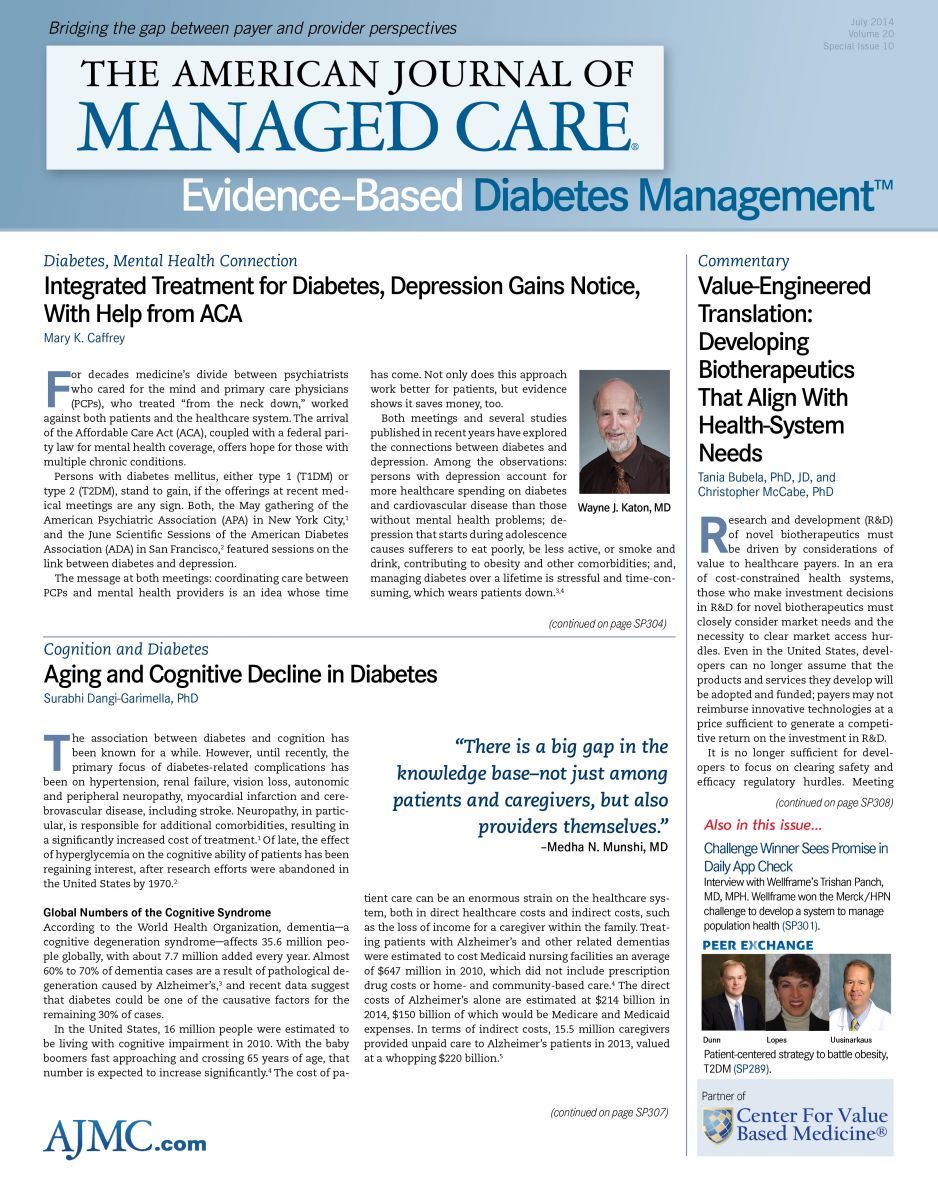- Center on Health Equity & Access
- Clinical
- Health Care Cost
- Health Care Delivery
- Insurance
- Policy
- Technology
- Value-Based Care
Afrezza, Inhaled Insulin, Wins FDA Approval
On June 27, 2014, the FDA approved Afrezza, an inhaled insulin for mealtime use, bringing this form of therapy back to the market after a 7-year absence.1 The approval covers patients with type 1 (T1DM) and type 2 (T2DM) diabetes mellitus, and follows an extensive review process, one that required the drug’s manufacturer, the MannKind Corporation, to perform additional clinical trials at FDA’s behest 3 years ago.2
Inhaled insulin got its first try in 2006, when Pfizer brought Exubera to the market. But the oversized inhaler was cumbersome and unpopular with patients and physicians alike. The product failed miserably and was pulled a year later.
By contrast, Afrezza’s small inhaler fits in the palm of a hand, and T1DM advocates who spoke with Evidence-Based Diabetes Management in May said it appeared MannKind had done its homework with patients this time around.3
“(This) approval broadens the options available for delivering mealtime insulin in the overall management of patients with diabetes who require it to control blood sugar levels,” Jean-Marc Guettier, MD, director of the Division of Metabolism and Endocrinology Products in the Center for Drug Evaluation and Research, said in a statement released by FDA.1
Afrezza is not for every person who requires insulin. FDA’s approval comes with a boxed warning, the strongest type, that the product should not be used by smokers or persons with chronic obstructive pulmonary disorder.1 Nor is Afrezza a substitute for long-acting insulin; rather, it is a mealtime complement for that product for T1DM patients; those with T2DM can use Afreeza with oral therapy. The inhaled product is seen as a means to get T2DM patients who need insulin to use it when they might otherwise avoid it, due to fear of needles.
According to the FDA, the approval includes requirements for 4 postmarketing studies for Afrezza: a clinical trial to evaluate pharmacokinetics, safety, and efficacy in pediatric patients; a clinical trial to evaluate long-term risks of lung cancer and cardiovascular function; and 2 studies to evaluate dose-response and within-subject variability.1References
1. FDA approves Afrezza to treat diabetes [press release]. Silver Spring, MD: FDA; June 27, 2014. http://www.fda.gov/newsevents/newsroom/pressannouncements/ucm403122.htm.
2. Wilemon T. FDA approves inhaled form of insulin. USA Today. http://www.usatoday.com/story/news/nation/2014/06/28/fda-inhaled-insulindiabetes-afrezza/11612739/. Published June 28, 2014. Accessed June 30, 2014.
3. Mehr S. Inhaled insulin’s long journey to commercialization. Am J Manag Care. 2014;20(SP8):SP253-SP254.

Quality of Life: The Pending Outcome in Idiopathic Pulmonary Fibrosis
February 6th 2026Because evidence gaps in idiopathic pulmonary fibrosis research hinder demonstration of antifibrotic therapies’ impact on patient quality of life (QOL), integrating validated health-related QOL measures into trials is urgently needed.
Read More
Exploring Pharmaceutical Innovations, Trust, and Access With CVS Health's CMO
July 11th 2024On this episode of Managed Care Cast, we're talking with the chief medical officer of CVS Health about recent pharmaceutical innovations, patient-provider relationships, and strategies to reduce drug costs.
Listen
Building Trust: Public Priorities for Health Care AI Labeling
January 27th 2026A Michigan-based deliberative study found strong public support for patient-informed artificial intelligence (AI) labeling in health care, emphasizing transparency, privacy, equity, and safety to build trust.
Read More

